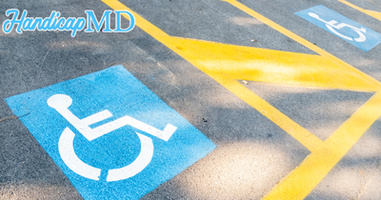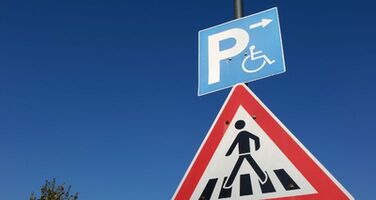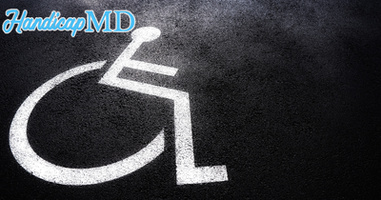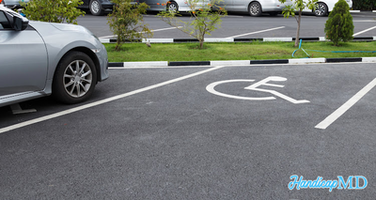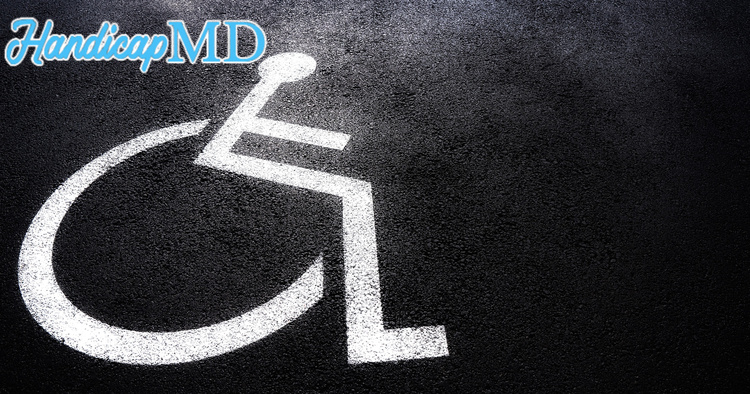
Myths vs. Facts: Debunking Common Misconceptions about Handicap Placards in North Carolina
Introduction
Handicap permits are an essential tool for individuals with disabilities in NC. They provide much-needed access to parking spaces and other amenities. However, there are numerous myths and misconceptions surrounding these placards. In this article, we will delve deep into the topic of "Myths vs. Facts: Debunking Common Misconceptions about Handicap Placards in North Carolina" to provide you with accurate information, dispel falsehoods, and offer clarity on this crucial issue.
The Importance of Handicap Placards
Understanding The Role
Handicap permits serve a vital purpose in North Carolina. They are issued to individuals with disabilities to ensure they have convenient access to parking spaces close to entrances, making their daily activities more manageable.
Myth 1: Placards Are Only for Wheelchair Users
Fact: Permits Serve Various Disabilities
Contrary to popular belief, placards aren't exclusive to wheelchair users. These cater to a wide range of disabilities, including those not immediately visible. Conditions like heart disease, lung disorders, and severe arthritis can all qualify. The emphasis is on the individual's need for accessible parking rather than the specific disability.
Myth 2: Placards Are Permanent
Fact: Permits Can Be Temporary
Another misconception is that these are permanent. In reality, they can be issued on a temporary basis for conditions that may improve over time. Temporary passes are a valuable resource for individuals recovering from surgeries or injuries that affect their mobility.
Myth 3: Anyone Can Use a Placard
Fact: Only Eligible Individuals Can Use Them
It's a common myth that anyone can use it. In truth, these are issued only to eligible individuals who meet the specific criteria outlined by the state of North Carolina. Misuse of disability passes is illegal and punishable by fines.
Myth 4: Permits Are Easily Obtainable
Fact: A Medical Evaluation Is Required
Obtaining a disability placard isn't as simple as filling out a form. A medical evaluation by a qualified healthcare professional is necessary to determine eligibility. This evaluation ensures that these are reserved for those who genuinely need them.
Myth 5: Placards Allow Parking Anywhere
Fact: Placards Come with Parking Restrictions
While passes grant priority parking, they do not entitle the holder to park anywhere they please. It's essential to understand the regulations surrounding disabled parking spaces, as misuse can lead to fines or penalties.
Myth 6: Permits Are Only Valid in North Carolina
Fact: Reciprocity Exists with Other States
NC honors handicap passes from other states, and reciprocally, other states recognize North Carolina's handicap placards. This means that individuals with valid permits can enjoy accessible parking privileges when traveling out of state.
Myth 7: Renewing Is Unnecessary
Fact: Permits Require Renewal
These passes are not a one-time issue. They have an expiration date and must be renewed regularly. This ensures that only those who continue to meet the eligibility criteria have access to these vital parking spots.
Myth 8: Placards Are Not Enforced
Fact: Law Enforcement Monitors Permit Misuse
Law enforcement agencies in NC take the misuse of disability tags seriously. They actively monitor parking lots for violations and issue citations to those who abuse the system.
Myth 9: Placards Are Inconsequential
Fact: They Make a Significant Difference
Disability tags may seem like a small detail, but they make a substantial difference in the lives of individuals with disabilities. Accessible parking spots close to entrances can greatly improve mobility and access to essential services.
Myth 10: Placards Are Easy to Forge
Fact: Security Measures Are in Place
To prevent forgery, NC uses security features on handicap permits. These measures help maintain the integrity of the system and ensure that only legitimate ones are used.
Myth 11: Reporting Permit Misuse Is Pointless
Fact: Reporting Is Important
Reporting misuse of disability tags is essential in maintaining a fair and accessible system. If you witness abuse, don't hesitate to report it to local authorities.
Myth 12: Passes Are Costly
Fact: They Are Typically Affordable
Obtaining a disability pass in North Carolina is generally affordable. The benefits they provide far outweigh the minimal cost involved.
Myth 13: Placards Are Discriminatory
Fact: They Promote Equality
These are not discriminatory; they promote equality and accessibility for all individuals, regardless of their physical limitations.
Myth 14: Passes Are Unnecessary
Fact: They Are Essential
Tags are not unnecessary privileges; they are essential tools that enable individuals with disabilities to live their lives with greater independence and dignity.
Myth 15: Passes Are Not My Concern
Fact: They Are Everyone's Concern
Accessibility and inclusivity are societal responsibilities. It's everyone's concern to ensure that individuals with disabilities have equal access to public facilities and services.
Frequently Asked Questions
Who is eligible for a disability permit in NC?
To be eligible for a handicap permit in North Carolina, you must have a qualifying disability as determined by a medical professional. This disability must limit your mobility significantly.
How long is a handicap pass valid in NC?
Disabiliy passes in NC can be issued as temporary or permanent. Temporary ones are valid for up to six months, while permanent ones are typically issued for five years.
Can I lend my disability permit to a family member or friend?
No, North Carolina law prohibits the lending or borrowing of permits. Each one is assigned to a specific individual with a qualifying disability.
What should I do if my disability pass is lost or stolen?
If your pass is lost or stolen, you should report it to the North Carolina DMV immediately. You can also request a replacement pass.
Can I use my North Carolina handicap permit in other states?
Many states in the United States have reciprocity agreements regarding handicap placards. It's advisable to check the specific rules and regulations of the state you plan to visit.
How can I renew my disability permit in NC?
To renew a pass in NC, you will need to reapply and provide updated medical documentation to verify your eligibility.
Conclusion
In this article, we've explored the world of handicap placards in North Carolina, debunking common myths and shedding light on the facts. It's crucial to understand the importance of these passes and use them responsibly. Remember that misuse can lead to serious consequences, and it's always best to follow the rules and regulations set forth by the DMV.
.png)


